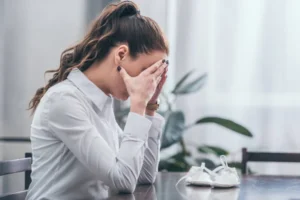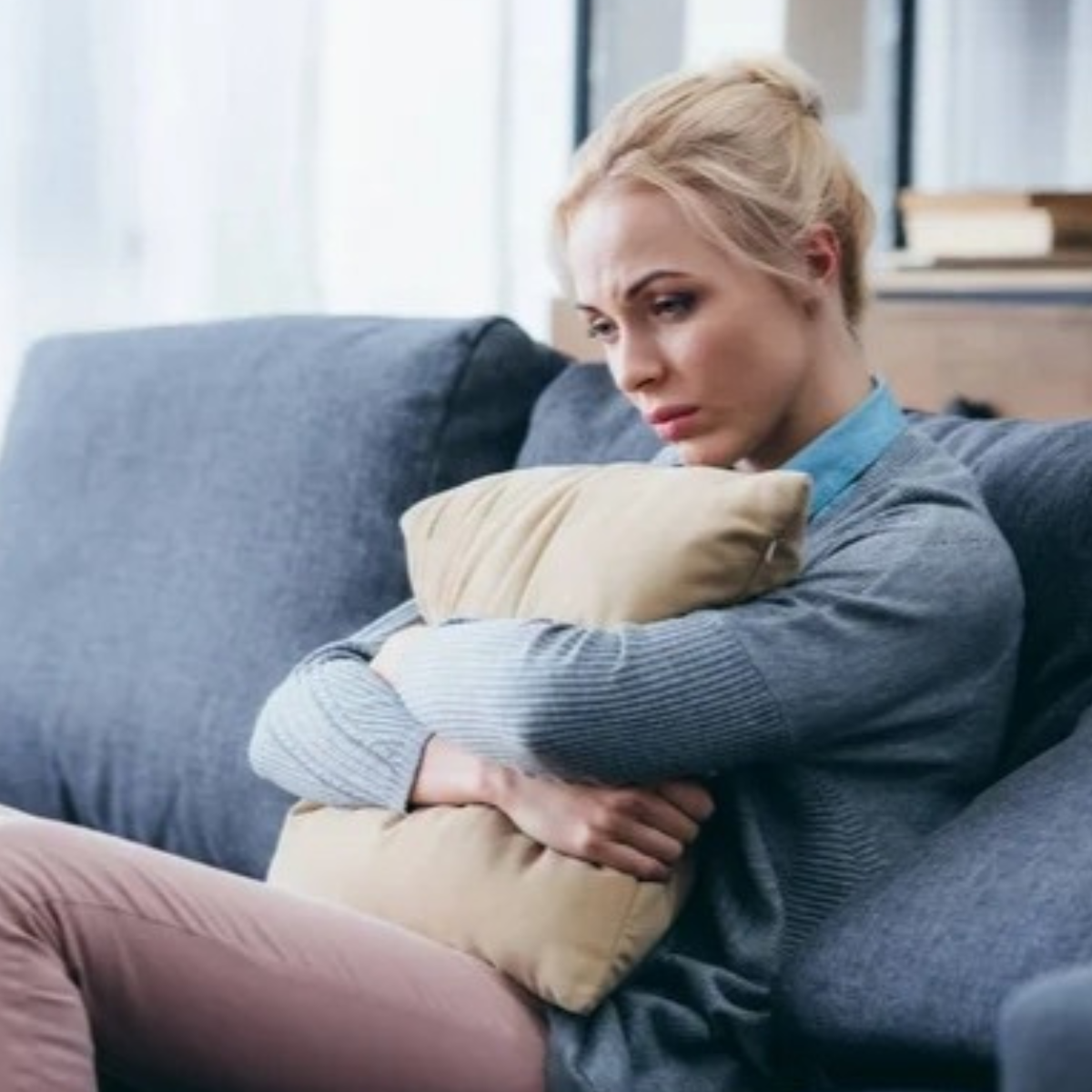10 Ways to Naturally Reduce Anxiety

Unpleasant anxiety symptoms can include unease, dread, terror, or an illogical sense of impending catastrophe. Whether anxiety appears as a tense tension that permeates everything, a queasy stomach, heart palpitations, or even a panic attack, the discomfort and suffering that come with it may be very challenging.Naturally Reduce Anxiety
Despite the fact that anxiety is not a spectrum disorder like other psychiatric issues, it does vary from person to person and fluctuate depending on the circumstance. Nevertheless, your particular brand of worry should always be taken into consideration regardless of where and how you experience it.
Making a few food changes, getting more exercise, spending more time outside, or practising regular meditation are just a few lifestyle changes that could eventually help lower anxiety. Deep breathing and relaxation techniques can both provide quick, all-natural relief from anxiety.
What is anxiety?

Anxiety is your body’s typical reaction to stress. It is a fear or anxiety sensation that can be brought on by a variety of things, such as chemistry in the brain, environment, and genetics.
the following symptoms of anxiety;
increased heart rate, fast breathing, agitation, and trouble focusing.
It’s crucial to remember that different people can experience anxiety in various ways. While one individual could feel as though their stomach is going to drop, another person can experience panic attacks, nightmares, or terrible thoughts.
Anxiety disorders are distinct from generalised anxiety disorder. It is one thing to be concerned about something novel or startling, but when those concerns take an enormous toll on your quality of life, they may be symptoms of a condition.
How can I treat anxiety?

There are many techniques to treat anxiety. Cognitive-behavioral therapy (CBT) is a treatment approach that aids patients in managing anxiety when it manifests.Naturally Reduce Anxiety
There are some drugs, like tranquillizers and antidepressants. They maintain mental equilibrium, lessen anxiety, and can even fend off the most severe symptoms.
There are both modest and substantial ways you might combat your worry, though, if you prefer to go a more natural approach.
You can alter your routines for things like eating, sleeping, and exercising. You can also give something altogether novel a try, like meditation or aromatherapy. There is a natural technique for everyone to lessen anxiety, no matter what your lifestyle demands are.
10 natural remedies for anxiety
1. Stay active
Regular exercise can significantly improve your mental health in addition to your physical health.
2013 research
According to Trusted Source, those with anxiety disorders who reported engaging in a lot of physical exercise were better able to fend off the onset of anxiety symptoms.
There are several potential causes for this. Your focus might be drawn from an anxious-inducing situation by engaging in physical activity.
Additionally, increasing your heart rate alters the chemistry of your brain to make room for anti-anxiety neurochemicals like:
Endocannabinoids, brain-derived neurotrophic factor (BDNF), and serotonin gamma-aminobutyric acid (GABA)
The American Psychological Association (APA) claims that regular exercise improves focus and willpower, which helps lessen some anxiety symptoms.
This is mainly a matter of personal preference when it comes to the type of exercise. Running or a high-intensity interval training (HIIT) class are your best bets if you want to truly raise your heart rate.
But if you want to start out with something a little less strenuous, exercises like Pilates and yoga might also be equally good for your mental health.
2. Steer clear of alcohol
Since alcohol is a natural sedative, it may initially help to ease the discomfort. However, research reveals a connection between anxiety and alcohol use, with alcohol use disorders (AUD) and anxiety disorders frequently co-occurring.
Review of 2017
Reducing alcohol use can help with anxiety and sadness, according to a dependable source that examined 63 separate studies.
Drinking too much can upset the neurotransmitter balance that is necessary for good mental health. This interference causes an imbalance that could result in specific anxiety symptoms.
Early sobriety may momentarily raise anxiety, but over time, it can decrease.
Additionally, it’s been demonstrated that alcohol interferes with sleep homeostasis, which prevents your body from falling asleep on its own. And as we’ll see later, getting a good night’s sleep is crucial for battling anxiety.
3. Consider quitting smoking cigarettes
Smokers frequently light up a cigarette when under pressure. However, smoking while you’re anxious is a temporary fix that could make anxiety worse over time, similar to consuming alcohol.
According to researchTrusted Source, your chance of subsequently having an anxiety illness increases the earlier in life you start smoking. Additionally, studies suggest that the compounds in cigarette smoke, such as nicotine, change the brain’s anxiety-related neural networks.
There are several methods to start quitting, if that’s what you want to do. Finding a secure replacement for cigarettes, such as toothpicks, is advised, according to the Centers for Disease Control and Prevention (CDC)Trusted Source.
4. Limit caffeine intake
Caffeine is not your friend if you suffer from persistent anxiety. If you’re uneasy, caffeine may make you jittery and agitated, neither of which are helpful.
Caffeine may contribute to or exacerbate anxiety disorders, according to research. In those who suffer from panic disorder, it could potentially trigger panic attacks. Caffeine withdrawal can considerably reduce anxiety symptoms in some persons.
Due to its capacity to change brain chemistry, coffee and anxiety are frequently associated, much like alcohol and alcoholism.
For instance, according to a 2008 studyTrusted Source, caffeine boosts alertness by inhibiting the brain chemical adenosine, which causes fatigue, and simultaneously inducing the production of adrenalin.
All things considered, most people can safely consume a modest amount of caffeine.
5. Prioritize getting a good night’s rest
Numerous studies have shown that getting enough sleep is crucial for maintaining excellent mental health.
The CDC advises adults to get 7 to 9 hours of sleep every day, despite a 2012 poll finding that nearly a third of adults sleep for less than 6 hours at night.
You can prioritise your sleep by:
only go to bed at night when you’re exhausted
without engaging in any reading or television in bed
avoiding using a computer, tablet, or phone in bed
not turning around in bed or moving to a different room if you can’t get to sleep
Don’t consume coffee, a lot of food, or smoke right before bed.
keeping your space chilly and dark
composing a list of your concerns before bed
sleeping at the same hour every night
6. Meditate and practice mindfulness
Full awareness of the present moment, which involves observing all thoughts without judgement, is one of the fundamental objectives of meditation. Your capacity to deliberately endure all thoughts and feelings will grow as a result, which might bring to a feeling of peace and satisfaction.
A key component of CBT, meditation is believed to reduce stress and anxiety.
30 minutes a day of meditation, according to John Hopkins research, may reduce some anxiety symptoms and have antidepressant effects.
7. Eat a balanced diet
Some people may experience mood changes as a result of low blood sugar, dehydration, or chemicals included in processed foods such artificial flavourings, artificial colorings, and preservatives. A high-sugar diet may affect mood as well.
Check your eating habits if your anxiety gets worse after eating. Drink plenty of water, steer clear of processed foods, and consume a balanced diet high in lean proteins, fruits, and vegetables.
8. Practice deep breathing
Breathing quickly and shallowly is typical of nervousness. It might cause a rapid heartbeat, lightheadedness or dizziness, or even a panic attack.
Deep breathing techniques, which involve intentionally taking slow, even breaths, can assist to reestablish healthy breathing patterns and lessen anxiety.
9. Try aromatherapy
Humans have utilised aromatherapy as a holistic therapeutic method for thousands of years. The technique promotes the health and wellbeing of the mind, body, and spirit by utilising natural plant extracts and essential oils. Its objective is to improve mental and emotional wellbeing.
The natural plant extracts’ essential oils can be immediately inhaled, added to a warm bath, or diffused. Using aromatherapy is advised for:
improve mood, aid in relaxation, aid in sleep, and lower heart rate and blood pressure
Some essential oils that are thought to reduce anxiety include:
Clary sage, lavender, and bergamot
Citrus ylang ylang
10. Drink chamomile tea
A typical home cure to soothe frazzled nerves and encourage sleep is a cup of chamomile tea.
According to a 2014 studyTrusted Source, chamomile may also be a potent ally in the fight against GAD. In comparison to individuals who received a placebo, the study indicated that those who took German chamomile capsules (220 mg up to five times daily) saw a higher decrease in test results that evaluate anxiety symptoms.
In a different 2005 study, it was discovered that chamomile extract promoted sleep in rats who had sleep disturbances. Researchers think the tea’s ability to connect to benzodiazepine receptors and exert hypnotic effects similar to those of benzodiazepines may make it act like a benzodiazepine.

